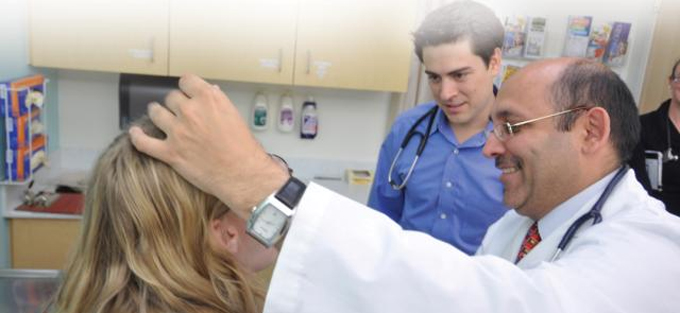Final Thoughts
Cultural Relevance in Medicine

By Paritosh Kaul, MD
(May 2, 2011) When I did my OB/GYN residency in Bombay, India, I took care of an unmarried, pregnant 19-year-old girl. I thought to myself, "Why is this young woman pregnant and single?" Culturally, it was not acceptable. Then one day I made a comment about her to a nurse. The nurse said, "Do you know her story?" This woman had been working in an upscale home as a maid, helping support her family. The husband of the family that employed her had raped her.
I tell this to my students because it shows I was judgmental. This young woman helped me come to understand that every patient has a story. It is our job to hear that story—and to be clear about our own story—so we can be more effective as health care providers.
This is embodied in the CU School of Medicine as "culturally effective medicine." It is a four-year thread, woven into courses throughout the curriculum.
Culturally effective medicine is not just about race and ethnicity; it is about effective health outcomes. Our students and our doctors need to understand that if you see the perspective of a patient, you will be able to communicate better and deliver more effective health care.
When you appreciate and respect differences, two things happen. First, when you say you and the patient may be different you acknowledge the elephant in the room. Second, by doing so, you decrease the "power dynamic" between patient and doctor. It mirrors the broader trend toward patient-centered medicine.
For example, with my teenage patients, I may say, "I respect that you have asthma and you choose to smoke weed. I respect that you told me this. But you have to respect that I will remind you at every visit about its effect on your health."
I take a direct approach when broaching topics with teens. Using the patient-centered strategies of culturally effective medicine, I convey my medical opinion in a way that can be understood given the teen’s worldview. So I have told my adolescent patients, "If you use a condom or not, I get the same salary. If you don’t use it, you have consequences. That doesn’t make me a bad doctor, and if you do use a condom it doesn’t make me a good doctor."
By the way, when I began directing culturally effective medicine for the school three years ago, it was called "cultural competency." That label implied that you are either competent or incompetent. But this approach is a lifelong journey in providing effective health care, so we changed the name.
Living in cultures different from my own has helped shape my belief in this approach to medicine. My family is from Kashmir, India, but I grew up and went to college and medical school in Bombay (now Mumbai). I was in the cultural and linguistic minority. As a chief resident, I was the only male in a department with 20 women. From India I moved to a small practice in a rural area of the Sultanate of Oman. I had to learn a new culture and language. There I was called a tabib, but whatever word for doctor is used, respect and caring transcends language and religion.
Still, there are barriers to teaching medicine with this emphasis on cultural effectiveness. It is seen as a soft science. My goal, therefore, is to quantify that it makes a difference. And we are doing that. Over three years we have shown improvements in outcomes and attitude.
Do students sometimes resist this approach? Sure. But then they see the clinical relevance of it; they understand that for them to become good doctors, they have to understand the importance of cultural effectiveness.
What will help make for a great doctor is paying attention to the patient and being straight with them. I believe that is true whether practicing in Boulder … or in Bombay, treating a pregnant woman whose story you really need to know.
Paritosh Kaul, an associate professor of pediatrics, is director of culturally effective medicine at the University of Colorado School of Medicine.
Please submit your essays for future editions to [email protected]